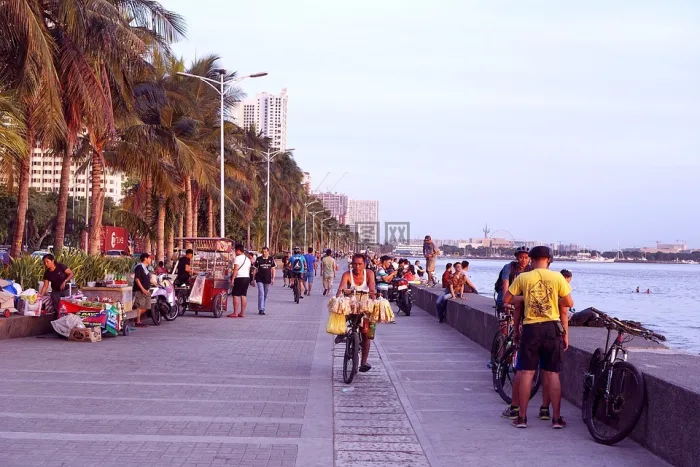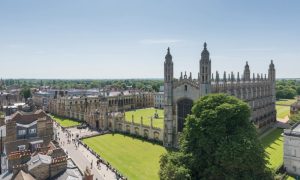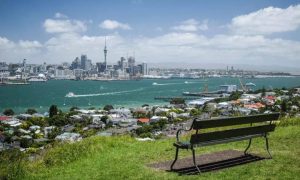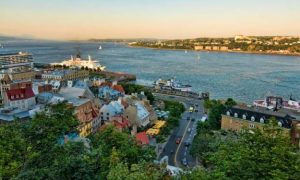With the "low-threshold, cost-effective"immigrantswave sweeping through Southeast Asia.Migration to the PhilippinesWith its warm climate, English-speaking environment, flexible visa policy and affordable cost of living, it has attracted more and more Chinese people.
butThe truth is.The seemingly easy immigration process actually hides a lot of "potholes". Especially in the background of the policy details adjustment in 2025 and the gradual complication of the immigration consulting market, many applicants have taken a detour and even regretted for the rest of their lives.
This article summarizes2025Immigration from the PhilippinesThe 5 most common misconceptions inWe also offer strategies to help you prepare for the real deal before you "just go".
Myth one:"Anyone can get an SRRV visa if they have the money."
Truth: The Philippine SRRV visa is a low-threshold visa, but it is not a "pay and pass" visa. Aside from the basic proof of deposit or pension, theBackground check, medical examination, certificate of no criminal recordNothing less. Especially starting 2025, the Philippine Retirement Authority (PRA) has become more stringent in scrutinizing the authenticity and completeness of application documents.
Coping Strategies:
-
Prepare a valid health checkup report within three months
-
Issuance in advance of a certificate of no criminal record from the public security organ in the place of household registration
-
Choose licensed agents carefully to avoid fraudulent or irregular submission of materials
Myth two:"Buy a house and get direct immigration status."
Truth: PhilippineThe "buy real estate and immigrate" model is not accepted. Although some categories of SRRV can invest in real estate with fixed deposits, it is limited to official projects approved by the PRA.and the property itself cannot hold separate land titles for foreigners.
Coping Strategies:
-
Make a clear distinction between "home ownership" and "homeownership".investment immigration"Two paths
-
Check the PRA website for the latest list of investment properties available
-
Don't believe in the gimmick of "buy a house and get a free identity" in real estate sales.
Myth Three:"If you have good English, you can work or do business directly in the Philippines."
Truth: Although the Philippines is an English-speaking country, theWork Visa (9G), Business Visaetc. still require a strict application process. Holding a tourist visa or SRRV visa isCannot work directly and legallyOr open a company to operate it.
Coping Strategies:
-
If you want to be employed, you need to be sponsored by a Philippine company and apply for a work visa.
-
If you wish to do business, it is recommended to explore the market with an SRRV before applying for a compliant business status
-
Avoiding "gray business", which, if detected, would be treated as illegal stay or illegal workers
Myth Four:"The Philippines is very backward and the quality of life is not guaranteed."
Truth: This is a stereotype of the Philippines. In fact, cities such as Manila, Cebu, and Davao have long had high standards of healthcare, education, and living services at prices far lower than those in Europe and the United States.
Coping Strategies:
-
Choose to live in a medium to large city with better infrastructure
-
International medical insurance is available to cover unexpected medical expenses.
-
Check out local international schools, shopping centers, transportation networks, etc. in advance.
Myth Five:"Visas can be renewed indefinitely and you never have to change your status."
Truth: Although the Philippine tourist visa can be renewed multiple times (up to three years), it does not mean that it can be "delayed". Long-term residency still requires a regular status, or else you may be restricted from entering or leaving the country and even affecting your future applications.
Coping Strategies:
-
For stays of more than six months, an "exit permit" from the Immigration Department is required upon departure.
-
It is recommended to apply for SRRV or work visa for medium and long term stay, for legal compliance and peace of mind.
-
Watch out for policy updates, such as the introduction of "digital nomad visas" that allow for the transfer of status.
Summary of Immigration Recommendations:
| type | population (esp. of a group of people) | Recommended Visa | caveat |
|---|---|---|---|
| retirement pension | Over 50 years of age with pension | SRRV Classic | Deposits and health certificates |
| digital nomad | Over 35, freelance | SRRV Smile / Tourist Visa | Non-working, subject to renewal |
| investor education | high net worth individual | Investment Visa / SRRV Classic | Projects are subject to PRA certification |
| Families Studying Abroad | Children in need of schooling | Student visa / Family visa | Schools need to be chosen carefully |
| Short-term trial stay | first explorer | tourist visa | Pay attention to the number of renewals and expiration dates |
Conclusion: Immigration is not difficult, the difficulty lies in recognizing the reality
Immigration from the PhilippinesIt is indeed much easier than European and American countries, but "easy" ≠ "no threshold". Avoid the misunderstanding, keep rationality, choose the agent carefully, do more homework, in order to really turn "the dream of immigrants" into a real life.


Your immigration should not be a choice held hostage by anxiety, but a sober, free and sustainable life plan.






